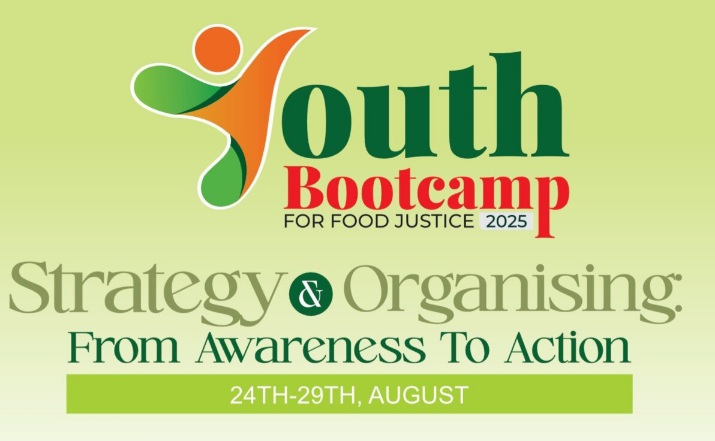By: Mandy Park
The Corporate Accountability and Public Participation Africa (CAPPA) is set to open its Youth Bootcamp for Food Justice 2025 on Sunday, August 24, at the Ikogosi Warm Springs Resort in Ekiti State. The week-long programme, organised in partnership with the Global Health Advocacy Incubator (GHAI), will run until August 29 and will draw young Nigerians from all six geopolitical zones.
The bootcamp is an intensive residential training designed to prepare the next generation of young leaders to engage with issues at the intersection of food, health, and policy. Over the five days, participants will undergo practical sessions that include hands-on workshops, policy simulations, media strategy design, and scenario planning exercises.
According to CAPPA, the programme was conceived in response to the growing burden of non-communicable diseases in Nigeria, which public health experts attribute to the excessive consumption of ultra-processed foods high in fat, salt, and sugar, compounded by weak regulation, as well as the misleading advertising and aggressive promotion of these products.
“Food justice is becoming one of the defining public health and social issues of our time,” said Akinbode Oluwafemi, Executive Director at CAPPA. “This bootcamp is about equipping young Nigerians with the knowledge, confidence, and skills to take part in shaping nutrition policies and environments that affect what we eat, how we live, and ultimately, the health of our communities.”
The bootcamp will feature a faculty of local and international experts in food policy and public health, many of whom are also accomplished campaigners and social justice advocates. Sessions will examine Nigeria’s food environment in depth, with particular attention to the Sugar-Sweetened Beverages (SSB) Tax, legislative pathways for advancing food justice and tackling non-communicable diseases (NCDs), and strategies for grassroots mobilisation to promote healthier diets.
Experts say these issues have taken on new urgency in Nigeria. The World Health Organisation reports that non-communicable diseases now account for nearly 30 percent of all deaths in the country, with hypertension, diabetes, and obesity rising steadily across both urban and rural populations. Diabetes alone is projected to affect more than six million Nigerians by 2045, up from 3.9 million in 2019, while hypertension is estimated to affect one in three adults. These conditions, closely linked to diet and lifestyle changes, are driving premature deaths and straining a health system already burdened by infectious diseases. Public health advocates warn that without stronger oversight of the food and beverage industry, particularly in regulating SSBs and ultra-processed products, Nigeria risks sliding into the same costly health crises that have overwhelmed many other countries.
For CAPPA, the bootcamp represents a way of building leadership capacity among young people, ensuring they can respond to these challenges with evidence-based advocacy. “We believe that young people are at the forefront of change,” Oluwafemi said. “They are not only consumers but also future policymakers, researchers, and leaders who must be part of the solution.”
Beyond its policy focus, the event will also foster networking and collaboration among participants, many of whom are expected to continue working together after the bootcamp. The bootcamp envisions a growing national network of food justice advocates who can share experiences, coordinate campaigns, and amplify one another’s work.

